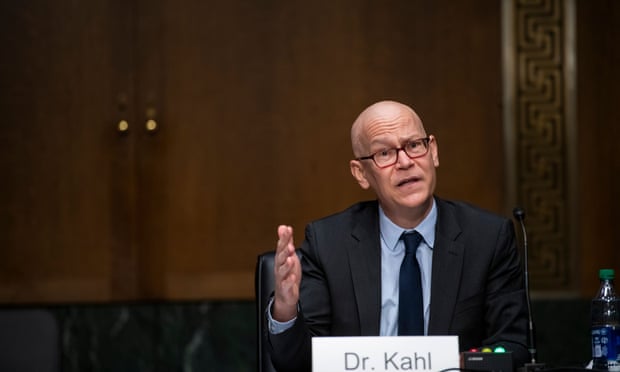The US intelligence community has assessed that Islamic State in Afghanistan could have the capability of attacking the United States in as little as six months – and has the intention to do so, a senior Pentagon official has told Congress.
“The intelligence community currently assesses that both Isis-K [Islamic State Khorasan Province, the Afghanistan-based group] and al-Qaida have the intent to conduct external operations, including against the United States, but neither currently has the capability to do so. We could see Isis-K generate that capability in somewhere between six or 12 months,” said Colin Kahl, under secretary of defense for policy.
The remarks are the latest reminder that Afghanistan could still pose serious national security concerns for the US even after it ended its two-decade war in defeat in August.
The Taliban, who won the war, are enemies of Islamic State and have seen its attempts to impose law and order after the US pullout thwarted by suicide bombings and other attacks claimed by Islamic State.
They include bombings targeting the minority Shia sect and even an Islamic State beheading of a member of a Taliban militia force in the eastern city of Jalalabad.
In testimony before the Senate armed services committee, Kahl said it was still unclear whether the Taliban has the ability to fight Islamic State effectively following the US withdrawal in August. The US fought the Taliban as well as striking groups like Islamic State and al-Qaida.
“It is our assessment that the Taliban and Isis-K are mortal enemies. So the Taliban is highly motivated to go after Isis-K. Their ability to do so, I think, is to be determined,” Kahl said, using an acronym for Islamic State in Afghanistan.
Kahl estimated Islamic State had a “cadre of a few thousand” fighters.
Amir Khan Muttaqi, acting foreign minister of the new Taliban government, has said the threat from Islamic State militants will be addressed. He also said Afghanistan would not become a base for attacks on other countries.
Kahl suggested al-Qaida in Afghanistan posed a more complex problem, given its ties to the Taliban. It was those ties that triggered the US military intervention in Afghanistan in 2001 following al-Qaida’s September 11 attacks on New York and Washington. The Taliban had harbored al-Qaida leaders.
Kahl said it could take al-Qaida “a year or two” to regenerate the capability to carry out attacks outside of Afghanistan against the US.
Joe Biden, whose supervision of the chaotic end to the war last summer has damaged his approval ratings, has said the US will continue to be vigilant against threats emanating from Afghanistan by carrying out intelligence-gathering operations in the country that would identify threats from groups like al-Qaida and Islamic State.
Kahl said the goal was to disrupt those groups so that Islamic State and al-Qaida don’t become capable of striking the US.
“We need to be vigilant in disrupting that,” he said.
Still, US officials privately warn that identifying and disrupting groups like al-Qaida and Islamic State is extremely difficult without any troops in the country. Drones capable of striking Islamic State and al-Qaida targets are being flown in from the Gulf.
Kahl said the US did not yet have any agreement with countries neighboring Afghanistan to host troops for counter-terrorism efforts.
Courtesy: The Guardian

